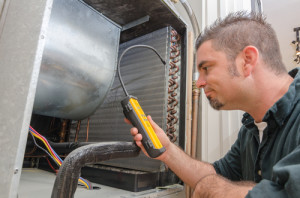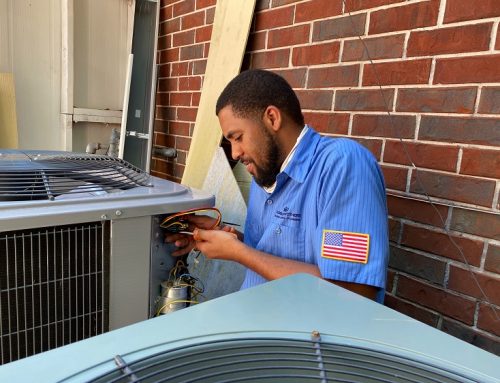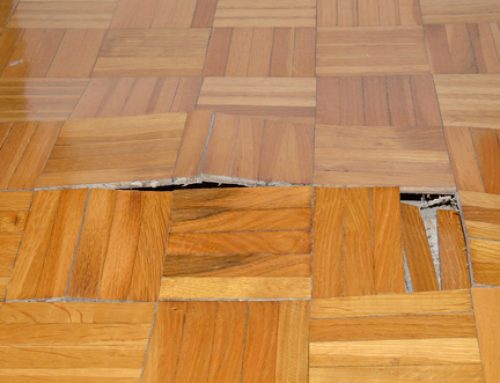 Clean A/C coils matter because your HVAC system carries a heavy cooling load. To keep the home comfortable, a typical residential air conditioner with a capacity of three tons must extract about 35,000 BTUs of heat energy from inside the house every hour, then disperse that heat into outside air. The evaporator coil located in the indoor air handler extracts heat energy from the airflow drawn over the coil by the blower fan. The condenser coil outside releases that load of heat energy into outdoor air. Anything that interferes with the performance of either coil affects A/C energy efficiency and indoor comfort.
Clean A/C coils matter because your HVAC system carries a heavy cooling load. To keep the home comfortable, a typical residential air conditioner with a capacity of three tons must extract about 35,000 BTUs of heat energy from inside the house every hour, then disperse that heat into outside air. The evaporator coil located in the indoor air handler extracts heat energy from the airflow drawn over the coil by the blower fan. The condenser coil outside releases that load of heat energy into outdoor air. Anything that interferes with the performance of either coil affects A/C energy efficiency and indoor comfort.
How Clean A/C Coils Get Dirty
- The indoor evaporator coil is exposed to over 1,000 cubic feet of airflow per minute in the air handler. Dust and dirt contained in the airflow may accumulate on coil surface, particularly if maintenance like routine air filter changes is neglected. As coil surfaces become coated, heat exchange efficiency declines and the air conditioner runs longer to meet thermostat settings, raising operating costs. In addition, a dirty coil combined with natural moisture from condensation may spawn toxic mold growth in coil passages.
- To disperse indoor heat outdoors, the condenser coil is exposed to outside air and vulnerable to airborne dirt and dust, leaves, grass clippings and other debris. If the coil becomes clogged, the heat dispersal function declines and cooling performance and energy efficiency are hindered.
What You Can Do
First, change the air filter monthly, particularly during cooling season. The entire air volume of your home circulates through the filter multiple times per day, making it the front line for removal of airborne particulates that clog the indoor evaporator coil.
Second, schedule an annual A/C tune-up, including indoor and outdoor coil cleaning if needed. It’s not a DIY project. The evaporator coil is usually sealed inside the air handler, requiring professional expertise and solutions for cleaning. Access required for thorough cleaning of the condenser coil involves dismantling the outdoor cabinet and safely disconnecting 240-volt power.
For more information on why and how to get clean A/C coils, contact Bradbury Brothers Heating & Air Conditioning today!
Image via Shutterstock.com




